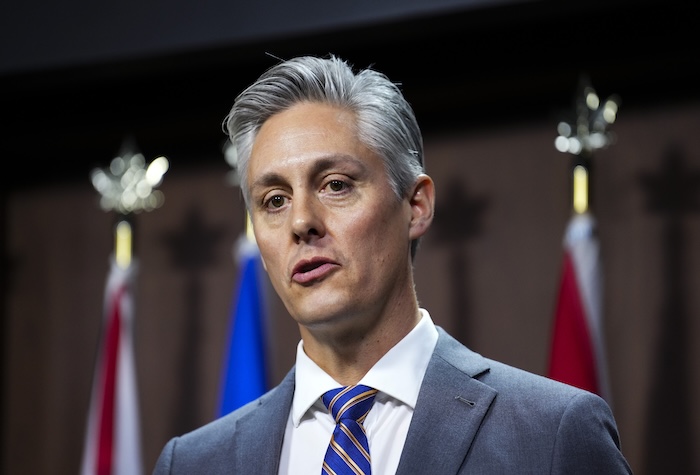Politics
Canada Strengthens Arctic Strategy Amid Rising Global Attention

Canada’s government has recently intensified its focus on the Arctic, aiming to enhance its sovereignty and security in the region. This shift comes after decades of perceived neglect, with Ottawa now prioritizing Arctic policies to address emerging geopolitical challenges. The United States is closely monitoring these developments, indicating the global significance of Canada’s renewed Arctic ambitions.
The Arctic region, historically overlooked, is now viewed as crucial for national security. This change in perspective is largely driven by increasing military activities from foreign nations, particularly Russia and China, which have expanded their presence in polar territories. The Canadian government, under the guidance of Global Affairs Canada and National Defence, is taking proactive measures to assert its rights and responsibilities in these waters.
In a 2023 report, the Canadian government outlined its strategy to bolster its presence in the Arctic. The plan includes investments in infrastructure, enhanced surveillance capabilities, and increased collaboration with Indigenous communities. This approach aims not only to safeguard Canada’s interests but also to ensure that local populations are engaged in decision-making processes.
Ottawa has committed to investing approximately $1.5 billion over the next five years to support its Arctic initiatives. This funding will facilitate the construction of new facilities, improve transportation networks, and enhance research capabilities in the region. The government acknowledges that the success of these efforts hinges on partnerships with Indigenous groups, who have long-standing ties to the land.
The United States has expressed interest in Canada’s Arctic strategy, given the strategic importance of the region for both nations. The North American Aerospace Defense Command (NORAD) has increased surveillance in the Arctic, emphasizing the need for coordinated efforts to counter potential threats. As Canada strengthens its military presence, it also seeks to enhance cooperation with the U.S. to ensure a unified response to challenges in this critical area.
Indigenous communities play a pivotal role in shaping Arctic policies. The government is working to incorporate traditional knowledge and practices into its strategic framework. This collaboration is essential, as Indigenous peoples possess invaluable insights into the region’s ecosystems and cultural heritage.
The renewed emphasis on the Arctic aligns with global trends, where countries are reevaluating their positions in response to climate change and resource accessibility. Melting ice is opening new shipping routes and revealing untapped natural resources, which further complicates the geopolitical landscape.
Canada’s Arctic ambitions reflect a broader recognition of the region’s significance, not only for national security but also for international cooperation. As the government implements its plan, the eyes of the world will be on the North, watching how Canada navigates these complex challenges and opportunities.
In summary, Canada is strategically repositioning itself in the Arctic, driven by security concerns and the need for sustainable development. With increased investment, collaboration with Indigenous communities, and a focus on international partnerships, Ottawa aims to assert its presence in a region that is witnessing rapid change. The upcoming years will be pivotal in determining how effectively Canada can achieve its Arctic objectives while addressing the diverse interests of all stakeholders involved.
-

 Sports2 weeks ago
Sports2 weeks agoSteve Kerr Supports Jonathan Kuminga After Ejection in Preseason Game
-

 Politics2 weeks ago
Politics2 weeks agoDallin H. Oaks Assumes Leadership of Latter-day Saints Church
-

 Lifestyle2 weeks ago
Lifestyle2 weeks agoDua Lipa Celebrates Passing GCSE Spanish During World Tour
-

 Business2 weeks ago
Business2 weeks agoTyler Technologies Set to Reveal Q3 2025 Earnings on October 22
-

 Lifestyle2 weeks ago
Lifestyle2 weeks agoKelsea Ballerini Launches ‘Burn the Baggage’ Candle with Ranger Station
-

 Health2 weeks ago
Health2 weeks agoRichard Feldman Urges Ban on Menthol in Cigarettes and Vapes
-

 Entertainment2 weeks ago
Entertainment2 weeks agoZoe Saldana Advocates for James Cameron’s Avatar Documentary
-

 World2 weeks ago
World2 weeks agoD’Angelo, Iconic R&B Singer, Dies at 51 After Cancer Battle
-

 Science2 weeks ago
Science2 weeks agoChicago’s Viral ‘Rat Hole’ Likely Created by Squirrel, Study Reveals
-

 Health2 weeks ago
Health2 weeks agoCommunity Unites for Seventh Annual Mental Health Awareness Walk
-

 Business2 weeks ago
Business2 weeks agoMLB Qualifying Offer Jumps to $22.02 Million for 2024
-

 Entertainment2 weeks ago
Entertainment2 weeks agoNetflix’s The Hunting Wives Season 2 Set to Deliver More Twists









